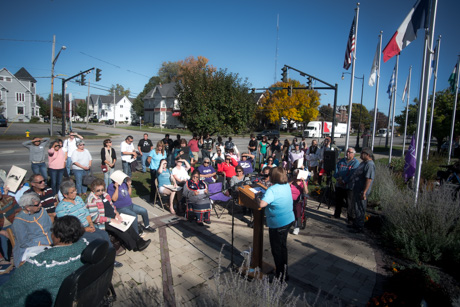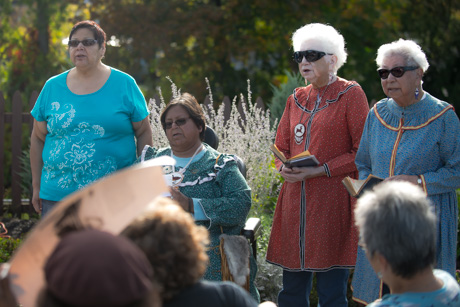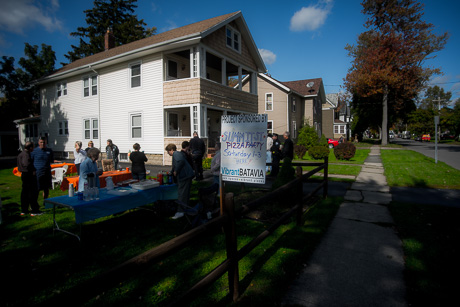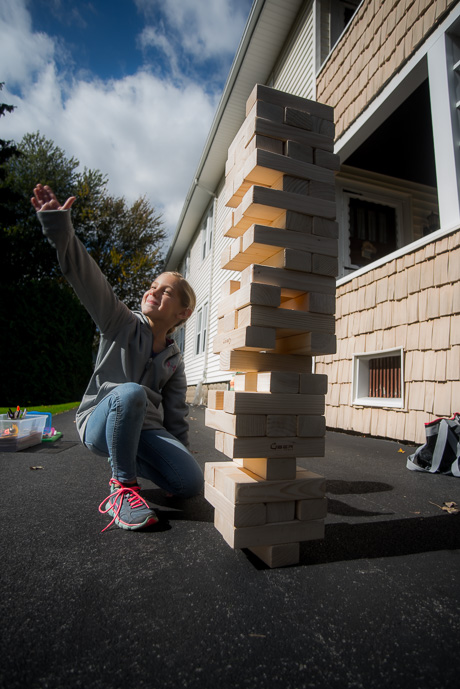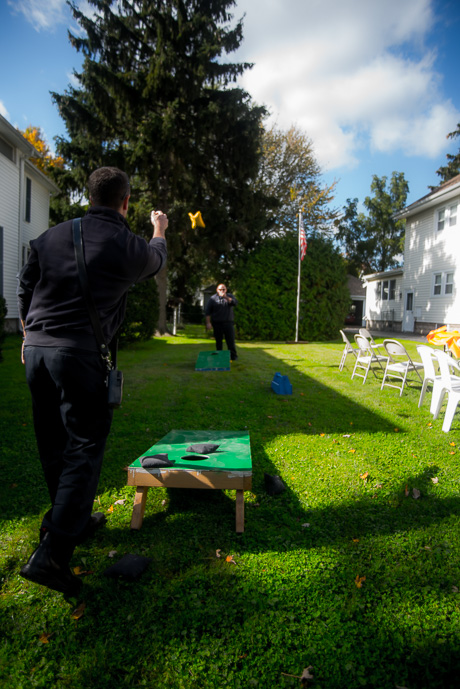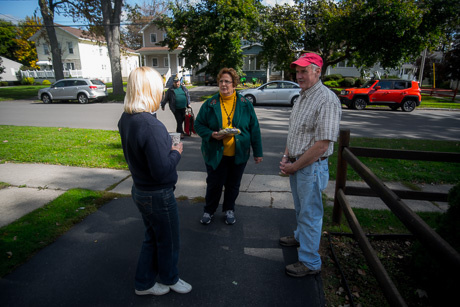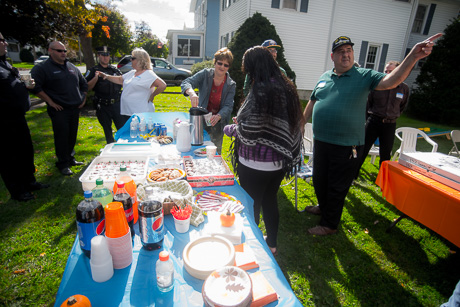Dog trainer becomes first certified animal behavior consultant in Genesee County
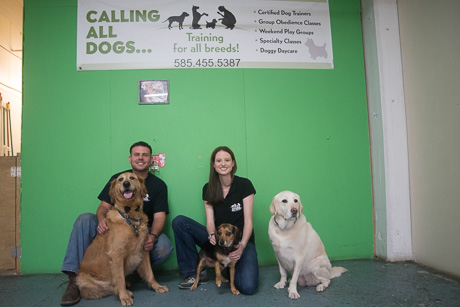
We think of dogs who bite, lunge, snarl and bark as aggressive, but that isn't necessarily the case, according to Tori Ganino, co-owner of Calling All Dogs, on Harvester Avenue.
Those behaviors are often a response born of fear, Ganino said, and dogs can be taught to be less fearful in situations they find stressful.
"What we do is train them that these situations aren't so bad, that you don't have to be afraid, you don't have to bite to make the person or thing go away," Ganino said. "Instead, we're going to help you feel better about it. So we change their emotional responses from a fearful one to a good one so that when I they see this person coming along, it's not such a bad thing. It's a good thing."
Ganino is a certified animal behavioralist, certified by the International Association of Animal Behavior Consultants, the only such certified consultant in Genesee County.
The certification process includes more than 400 hours of coursework, 500 hours of work with clients and a 12-part, essay-based exam. Certification also requires ongoing training and keeping abreast of the latest research-based behavior and training techniques.
Ganino started on the path toward certification after becoming the owner of a dog who had become fearful after a bad experience with a man in a pet store where the dog had been available for adoption. Ganino said in certain situations, the dog would just shake with fear. She wanted to help her pup handle fearful situations better so she sought some training.
The first training class used what's known as "flooding," which is repeated exposure to the fearful situation until the dog learns not to fear the stimulus any longer, usually by just emotionally shutting down. Ganino didn't feel good about that technique for her dog, so she sought out alternatives and discovered animal behavior training.
"I wanted to find a way to help him feel better about the situation and not put him in a situation he couldn't handle," Ganino said.
Unlike techniques that rely on punishment or dominance, behavioral training is about positive reinforcement for correct behavior.
If a dog snarls and lunges at certain people, the owner shouldn't scold, but rather divert the dog's attention, elicit the desired response and then reward the dog for the correct behavior.
"If he's in a situation where he's growling, he's over the point where he's comfortable with what's going on, so you need to take him away from it so can get him at a place where he's comfortable and then start the training," Ganino said. "That's where the behavior work really starts. You can't reinforce the emotion. You can make changes to get him to feel better, but at the time that he's seeing that person and thinking, 'I'm upset and I'm getting yelled at, too,' he learns that it validates his concerns. He's feeling a threat. It's not a good situation and he's getting yelled at."
Dogs look to their owners for leadership and an owner who is upset in a bad situation is telling a dog "This is a situation where you should be upset."
"With behavior work, we don't say, 'I don't want you to bark at this person,' " Ganino said. "Instead, we say, 'Why don't you look at me. Why don't we go over here and do this.' because 'no' just means stop, but you're not helping him understand what he's supposed to do. When he's lunging at another person, back him up and work with him so he realizes, 'I can look at that person, but what am I supposed to do when I look at him? I'll look back at mom and dad and they'll guide me through it. We'll play. We'll get rewards for it and then we'll go on our way.' "
Ganino owns Calling All Dogs with her husband, Rich, and while Ganino specializes in working with fearful and aggressive dogs, Calling All Dogs offers a range of obedience classes and personal training sessions as well as doggie day care.
A typical six-week class is $99, but on a space-available basis, owners of foster dogs can sign up for free classes.
Well-behaved dogs are socialized, get plenty of exercise and ample mental stimulation. They know what's expected of them and can count on their owners to provide a stable routine. Obedience classes are as much about training the owners as training the dogs, and it helps the owners understand how to avoid situations that maybe their dogs can't handle and then raising the fear factor.
"Any dog can have that emotional change to 'I'm upset and I'm scared,' " Ganino said. "A lot of times biting is a response to 'I'm afraid.' We can help a dog feel better, but it's up to the owners not to put them in situations they're not ready to handle."




